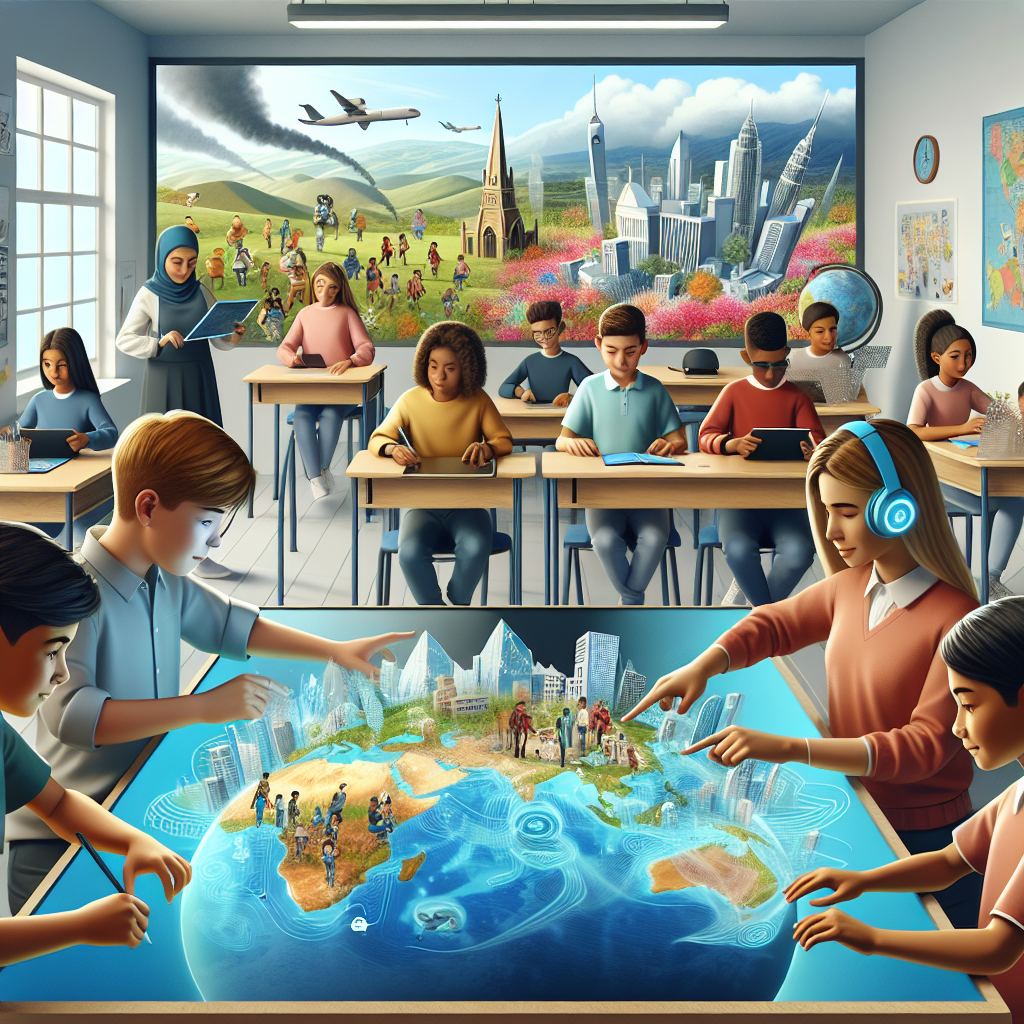Introduction
Field trips have long been a staple of the educational experience, providing students with the opportunity to explore the world beyond the classroom and apply their learning in real-world contexts. However, traditional field trips can be logistically challenging, time-consuming, and expensive, limiting the opportunities for students to engage in hands-on learning experiences.
With the advent of artificial intelligence (AI) technology, educators now have a new tool at their disposal to bring the world to the classroom in innovative ways. AI-powered field trips use virtual reality, augmented reality, and other digital tools to simulate real-world environments and provide students with immersive learning experiences. In this article, we will explore the benefits of AI-powered field trips, how they can enhance the educational experience, and address some common questions about this emerging educational trend.
Benefits of AI-Powered Field Trips
1. Accessibility: One of the main advantages of AI-powered field trips is their accessibility. With traditional field trips, students may be limited by factors such as location, cost, or physical disabilities. AI-powered field trips eliminate these barriers by bringing the world to the classroom, allowing all students to participate in immersive learning experiences regardless of their circumstances.
2. Safety: In light of recent events such as the COVID-19 pandemic, safety concerns have become a significant factor in educational planning. AI-powered field trips provide a safe alternative to traditional field trips, allowing students to explore different locations and cultures without leaving the classroom. This can help schools reduce the risk of exposure to illness and ensure the safety of their students.
3. Customization: AI-powered field trips offer educators the ability to customize the learning experience to meet the specific needs of their students. Teachers can tailor the content, pace, and level of interactivity to suit the learning styles and abilities of their students, providing a more personalized and engaging educational experience.
4. Engagement: Virtual reality and augmented reality technologies have been shown to increase student engagement and retention of information. By immersing students in interactive and visually stimulating environments, AI-powered field trips can capture their attention and stimulate their curiosity, leading to deeper learning and understanding of the subject matter.
5. Cost-effectiveness: Traditional field trips can be costly, requiring schools to cover expenses such as transportation, admission fees, and meals. AI-powered field trips offer a cost-effective alternative, as they eliminate many of these expenses and can be accessed using existing technology such as laptops, tablets, and virtual reality headsets.
How AI-Powered Field Trips Enhance the Educational Experience
1. Real-world application: AI-powered field trips provide students with the opportunity to apply their learning in real-world contexts. By simulating authentic environments and scenarios, students can practice problem-solving skills, critical thinking, and decision-making in a hands-on and interactive way.
2. Global perspective: With AI-powered field trips, students can virtually travel to different countries, explore diverse cultures, and gain a global perspective on various issues. This helps broaden their horizons, foster empathy and understanding, and promote cultural awareness and tolerance.
3. Interactivity: AI-powered field trips offer a high level of interactivity, allowing students to actively engage with the content and manipulate objects within the virtual environment. This hands-on approach to learning promotes active participation, collaboration, and experimentation, leading to a more dynamic and engaging educational experience.
4. Multi-sensory experience: Virtual reality and augmented reality technologies engage multiple senses, creating a rich and immersive learning experience. Students can see, hear, and even touch objects within the virtual environment, enhancing their understanding and retention of information.
5. Lifelong learning: AI-powered field trips can inspire students to pursue further learning and exploration beyond the classroom. By exposing them to new ideas, cultures, and experiences, these virtual experiences can spark curiosity and a desire to continue learning and growing throughout their lives.
FAQs about AI-Powered Field Trips
1. What technology is needed to participate in AI-powered field trips?
AI-powered field trips can be accessed using a variety of devices, including laptops, tablets, and virtual reality headsets. Some platforms may require specific software or apps to run the simulations, so it is important to check the system requirements before participating in a virtual field trip.
2. Are AI-powered field trips suitable for all grade levels?
AI-powered field trips can be adapted to suit the needs and abilities of students at different grade levels. Educators can customize the content, level of interactivity, and learning objectives to align with the curriculum standards and the developmental stage of their students.
3. How can educators integrate AI-powered field trips into their lesson plans?
Educators can incorporate AI-powered field trips into their lesson plans by aligning the virtual experiences with the learning objectives and curriculum standards. They can use these simulations to introduce new concepts, reinforce learning, or provide enrichment activities that complement the classroom instruction.
4. What are some examples of AI-powered field trip simulations?
AI-powered field trips can simulate a wide range of environments and scenarios, such as historical landmarks, natural habitats, scientific experiments, and cultural events. For example, students can virtually explore the Great Wall of China, conduct a virtual dissection of a frog, or attend a virtual concert at the Sydney Opera House.
5. How can AI-powered field trips benefit students with special needs?
AI-powered field trips offer a flexible and inclusive learning experience for students with special needs. Educators can customize the content, pace, and level of interactivity to accommodate the individual needs and preferences of these students, providing them with a stimulating and accessible educational experience.
Conclusion
AI-powered field trips offer a transformative approach to experiential learning, bringing the world to the classroom in innovative and immersive ways. By leveraging virtual reality, augmented reality, and other digital tools, educators can provide students with engaging and interactive learning experiences that enhance their understanding, curiosity, and global perspective. As AI technology continues to evolve, the possibilities for AI-powered field trips are endless, offering educators new opportunities to inspire and educate the next generation of learners.

